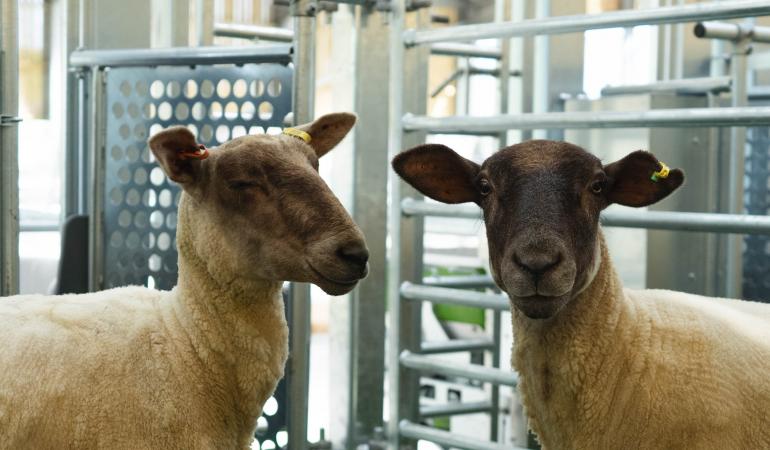
A new high-tech ‘sheep shed’ has been unveiled which will allow researchers to monitor the impacts of livestock in real-world farming systems.
The facility, located near Okehampton, Devon, measures how sustainable different farming methods are.
It will help scientists study different ways of rearing and producing lamb – and examine whether a switch away from red meat is good for the environment in the UK.
The ‘farm lab’, or Farm Platform, is in fact three self-contained farms.
Every relevant input such as fertiliser and manpower, and all key outputs including pollutants in water runoff from fields, greenhouse gases and, ultimately profits, are monitored.
It will house 400 or more ewes and up to 60 goats, with group and single pen facilities for feeding and behavioural research trials, including 24 automatic feeding pens.
It will keep the flocks reared on the different farming systems separate over winter to fully examine and compare the environmental and efficiency benefits of each.
And the lab will do this by allowing researchers to measure the nutrients taken in, animal growth, urine and faeces produced, and the greenhouse gases being emitted by the sheep, individually or in groups, during housing.
'Farm-scale' research
The facility is owned by Rothamsted Research. Professor Michael Lee, head of the site, said agricultural research often focused on individual animals or field-scale trials, and it was not always easy to extrapolate that up to the level of the farm.
“All the research we do, the leading stakeholder is the farmer, to help them improve their productivity, sustainability, reduce emissions and improve efficiency generally.
“Instead of doing that at a field or animal scale, let’s do that at a farm scale.”
For four years, the three farming systems tested have been permanent pasture which uses fertiliser, a quasi-organic system which relies on natural nutrients such as manure, and a short-term lay system which sees farmers ploughing and sowing grass crops for feed.
“There’s been a lot of press about the detrimental impact of grazing livestock on the environment,” said Prof Lee, but there was no real evidence on the impact of removing ruminants such as sheep and cattle from the food chain.
“We want to run these experiments so we can have enough data to show the true impacts,” he said.
He added that the idea was to look at if it was possible to develop a system which utilises the natural benefits of grazing animals such as cattle and sheep for food security.
